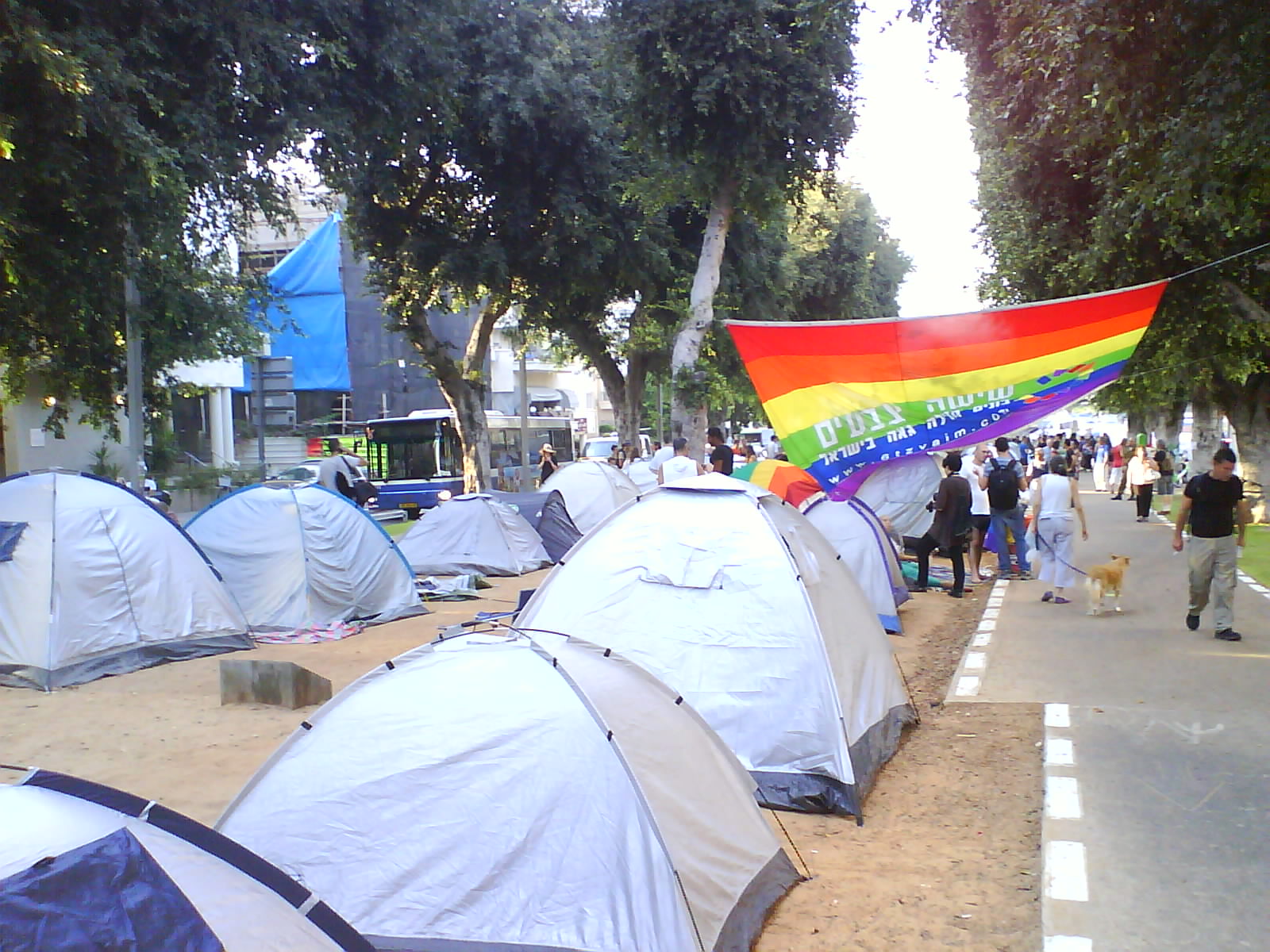Will the Rothschild Boulevard Protests Create a Change in the Tel Aviv Real Estate Market?
Anyone who has been in Tel Aviv over the last week has surely noticed the tent village that has sprouted up along Rothschild Boulevard in the heart of the city. What first started as a few students protesting the lack of cheap apartments for rent in the city has turned into a mini city of 100’s of families and individuals, with residents ranging from middle class families to current parliament members. Their demands? Solutions for affordable housing in the center of the city, a stop to the rise in home prices, and a reduction in the price of apartments for rent in Tel Aviv.
The mayor of Tel Aviv, Ron Huldai, has already chimed in on the side of the protestors, blaming the sitting government in Jerusalem for not putting a stop to the rise in prices. Prime Minister Netanyahu today also lashed out at his own ministers for not coming together to find a solution the problem. Unfortunately, for the foreseeable future, there will not be any government assistance in regards to pricing.
But should there be? The issue of real estate prices in Tel Aviv is an issue of simple “supply and demand”. The government has made it attractive for investors with tax incentives, driving prices on all apartments, especially 2 and 3 bedroom homes, up over 50% over the past 3 years. Rental prices, similarly, have seen less than an equal rise in real terms, with yields dropping over the same time period.
Nobody enjoys drastic rises in the price of housing, anyone can understand the protestors’ wishes. As unfortunate as it is, however, that prices have become out of reach for much of the middle class, this is an issue that can only be solved by creating more affordable housing, which is being done with the help of the Mayor, though being stymied by the government. The vast majority of these protestors, however, are not content with this solution. The affordable housing projects for young couples and the middle class are being built out of the center of Tel Aviv and are still a few years off.
So can we expect to see a change in the Tel Aviv real estate market as a result of the protests? Don’t expect to, the bubble is not about to burst as a result of these demonstrations. At the end of the day, sales of residential units continue to be closed every day, with only a 1% decrease last month, the first dip since 2007. While the middle class may not have the cash to purchase their dream home in the center of Tel Aviv, there are still plenty who can. Tel Aviv, like any international city, is not the greatest bargain in the world to most. Nice homes cost money, and Tel Aviv real estate prices are on par with other international hubs such as New York, Paris, and Moscow. It costs money to build buildings, and those who pay, deserve to reap the rewards.
The real answer is to create a life outside of the city center by making the developing sections of the city where housing is being built, more desirable to live in for young people and families. There is plenty of space in Tel Aviv, but the municipality focuses its energy and money on solely the center in order to maximize profit from Israeli visitors and foreign tourists by means of restaurants and bars (high property tax), parking tickets, and car parks. Serious development of the neighborhoods surrounding the center must begin sooner than later, where the average Israeli family can live and play at prices on par with the average Israeli salary. Only when the municipality decides to make Tel Aviv a city for all of its’ residents, and not only those in the center and shoreline, we will begin to see real progress.
As always, your thoughts, comments, and suggestions are welcome!


What do you mean by neighborhoods surrounding the center?